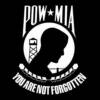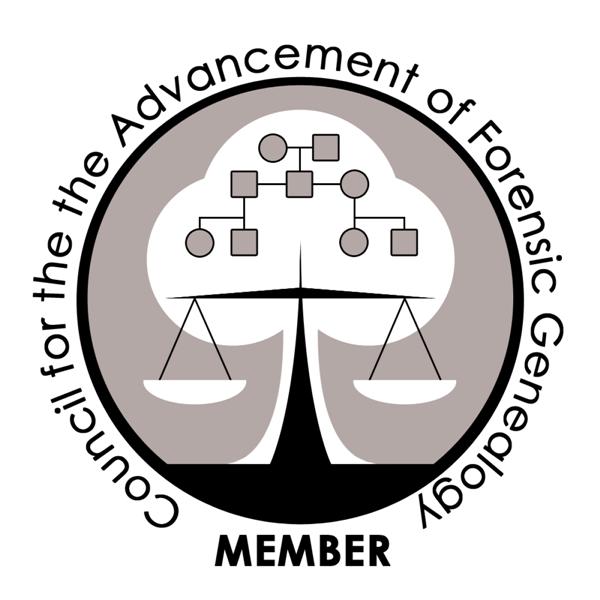Forensic Genealogy Services, LLC
Dee Dee King, FGC (sm), FCAFG (sm)*
832-336-2156
PO Box 1085
Manvel Texas 77578
*Council for the Advancement of Forensic Genealogy (CAFG) is the credentialing body governing the ForensicGenealogistCredentialed(SM) credential (which is abbreviated as FGC). FCAFG indicates that the recipient has been designated as a Fellow of Council for the Advancement of Forensic Genealogy.
Copyright © 2007-2012, Forensic Genealogy Services , LLC All rights reserved. May not be reproduced in whole or in part in any manner without advance written permission. Copyright extends to all text, photographs, images and html. You may freely link to this site, but may not structure our linked web pages to appear to belong to any other site.
1. Are you part of the Navy?
A. No. Each of the Military Services contracts with professional genealogists to update case files of "Unaccounted-For" service members associated with World War II, Korean War, Vietnam War, Cold War, and the Gulf War. In July of 2009, Forensic Genealogy Services, was selected by the US Navy Casualty POW/MIA Branch to serve as its Contract Professional Genealogist. See Navy authorization letter. We were awarded new contracts for these services in 2014, 2017, and again in June 2022.
2. What private or personal information do you collect about the family?
A. Our only task is to develop a limited family tree that identifies:
(1) The legal Primary Next of Kin for each family, and
(2) Family members eligible to provide mitochondrial DNA (mtDNA) or yDNA Family Reference Samples (FRS). The only additional information that is collected is the name, address, and telephone number of the volunteer donors and family contacts. No one from this office would ever ask for driver license or Social Security numbers or financial information!
3. Why doesn't Navy just contact us?
A. Military personnel files often have limited family contact information. Especially in these older cases, the files may have the contact information for family members who are now deceased or whose whereabouts are now unknown. It is the genealogist's job to identify the currently living relatives and provide that information to Navy so that Navy can contact the family.
4. I am a family member, why wasn't I contacted?
A. Ms. King's task is to identify specific FRS donors. Once these have been identified, our search stops and the report is submitted to Navy.
5. What happens after the report is submitted?
A. The Navy Casualty POW/MIA Branch contacts the family members identified in the report. Navy arranges for a DNA testing kit to be sent to the donors. We do not send the kits. Once our report is submitted to Navy, that case file is closed and we continue to work on other Navy cases.
6. Why do you want DNA from the maternal side and the paternal side?
A. The maternal lines pass on mitochondrial DNA (mtDNA). mtDNA is very stable over several generations and when remains are in adverse conditions for long periods of time. The addition of yDNA gives better test results to identify the particular Sailor.
7. What will this cost me?
A. Nothing. Navy furnishes the DNA testing kit and provides a postage-paid envelope to mail the kit to the testing laboratory.
8. What if I have more questions about this process?
A. The Navy person assigned to your case will provide additional information. Our task is to identify, locate, and report the family member.
9. How can I confirm that this is legitimate?
A. Please see the Navy Casualty page for links to verify.
10. Why are you looking for my relatives?
A. The Navy Casualty Department, POW/MIA Branch assigns cases in conjunction with current and future projects of the Defense POW/MIA Accounting Agency (DPAA).
Frequently asked questions about the assignments for the US Navy Casualty POW/MIA Branch.
Copyright © 2007-2022


